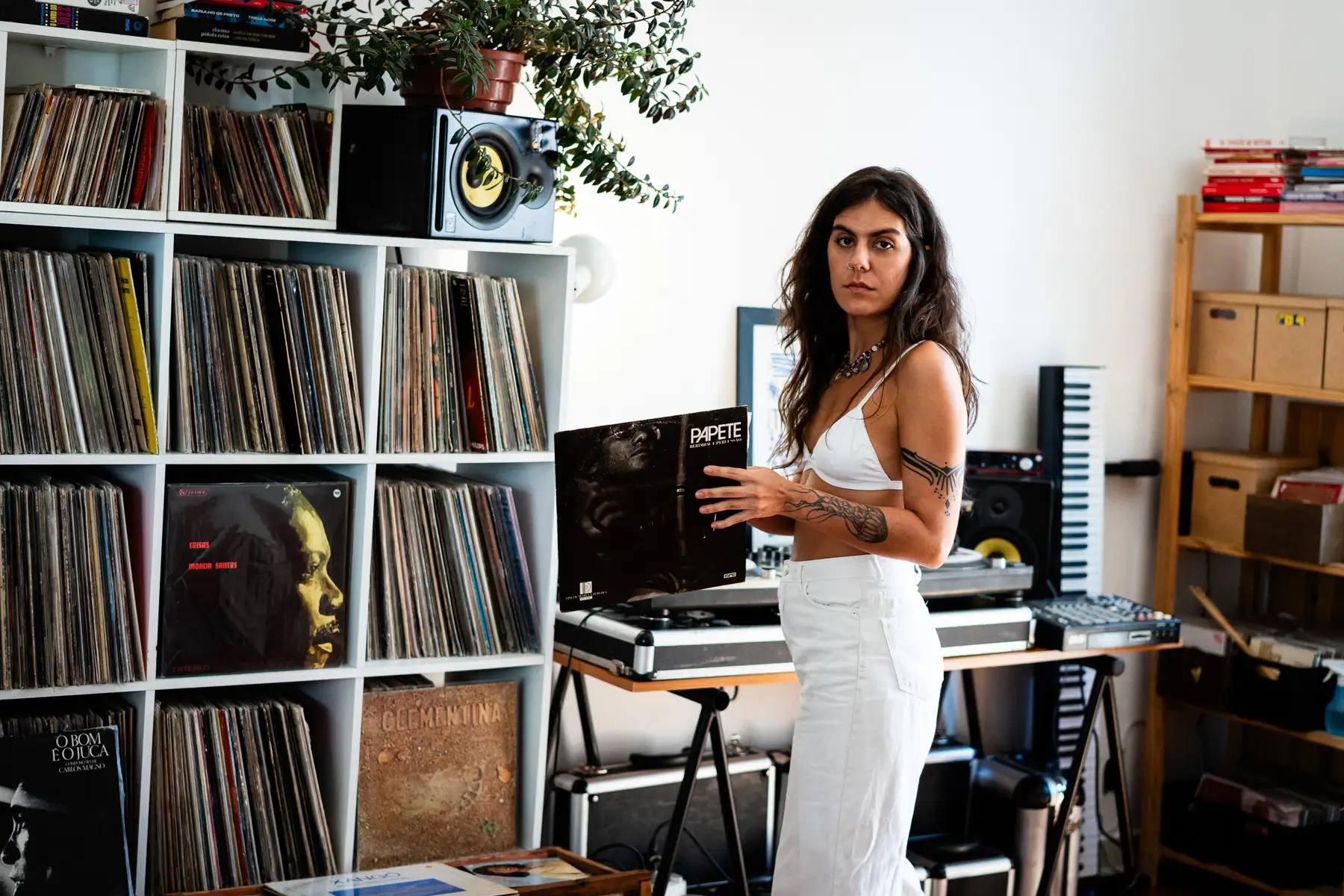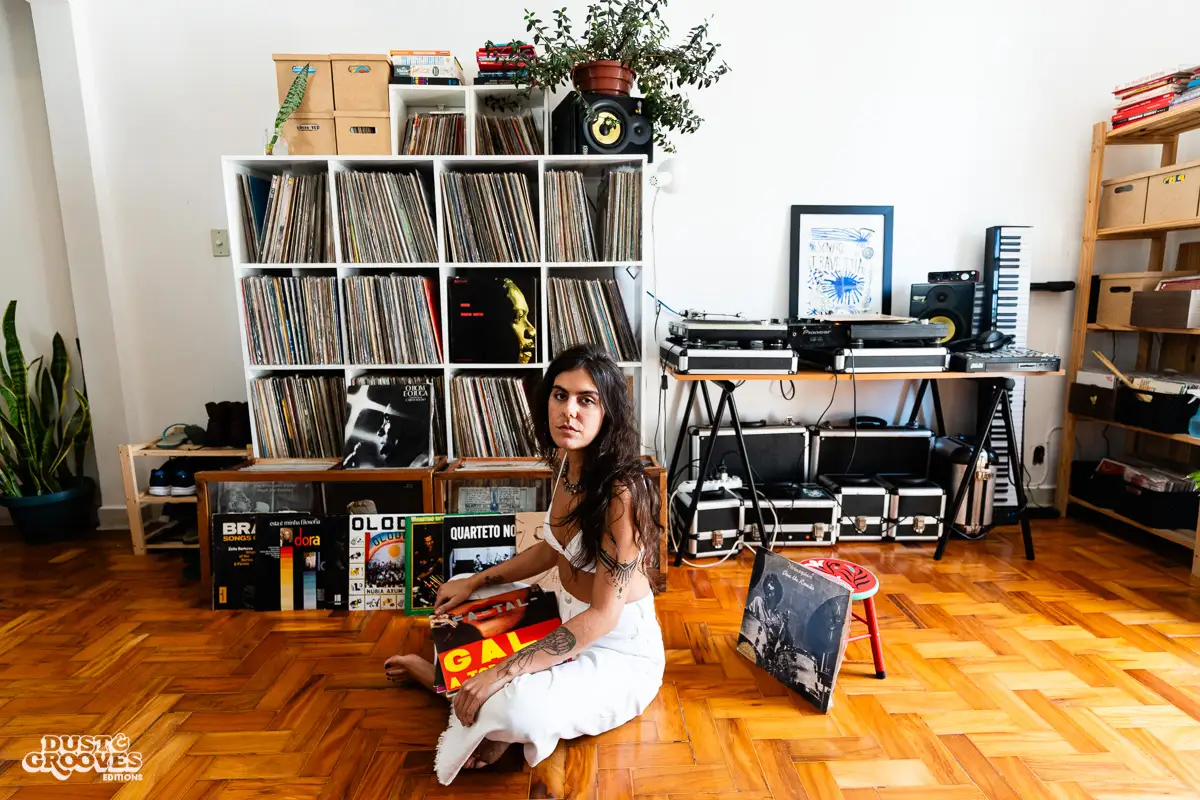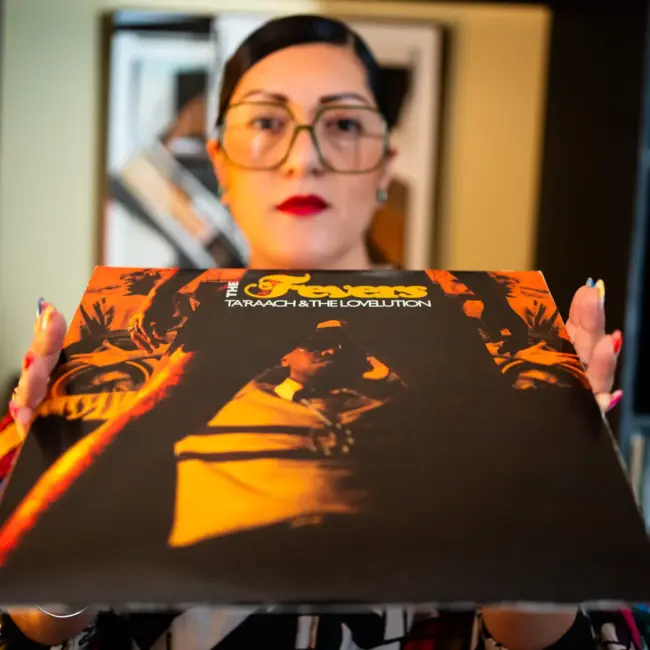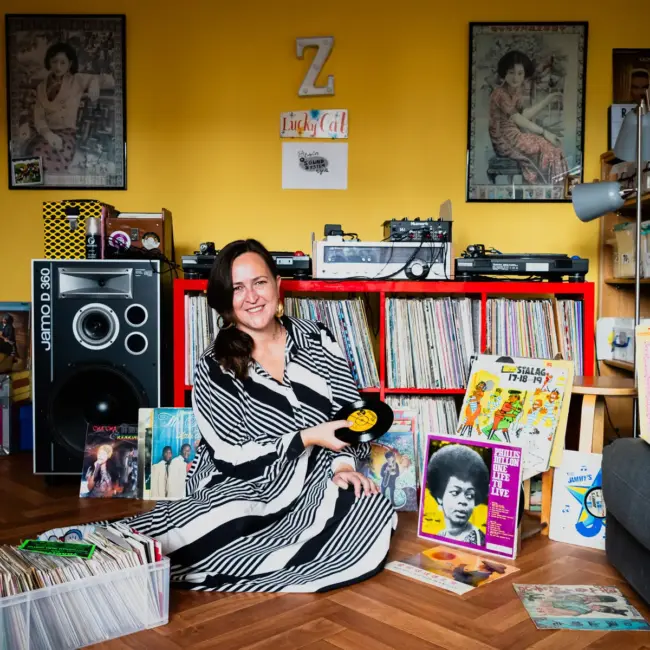Born and based in São Paulo, Brazil, Mariana Mendes Guarnieri—known as Mary G—has become a staple of the Brazilian DJ scene. It took her years to break into the mainstream, but now she plays the biggest stages alongside artists who once filled her parents’ modest record collection. At the Coala Festival, she opened for the father of so many generations, Gilberto Gil, and at Blue Note São Paulo, she set the stage for the legendary “wizard” Hermeto Pascoal.
We met for the first time on a very hot afternoon in the city for this “girl’s talk” to follow. Our chat was extra special as we celebrated the birthday of the iconic Gal Costa. We talked about her experience pursuing music while studying design in college and breaking norms as a woman in Brazil’s male-dominated DJ scene.
Spinning at various venues around town, she honed her craft in music selection, drawing inspiration from Brazil’s most passionate DJs. Just over a decade ago, it was rare to see women running the sound booth or taking the spotlight at parties. As Mary puts it, “We don’t need to say amen to what was created by a bunch of men; there are other possibilities.” DJs like Mary G have sparked a revolution.

“I want to find out who made this song and that arrangement. I love every aspect of digging! It opens you to an infinite world of new places and sounds.”
Mary G Tweet
Let’s start from the beginning; where did it all begin?
I spent my whole life on the outskirts of São Paulo, but when I was about eighteen, I started going downtown. It was far from home, so I began spending more time there, developing a musical background that still connects to what I do today.
I started going to this nightclub, Sarajevo, and from the moment I stepped in, I was blown away! I was there every weekend, from Thursday to Sunday. That’s when I really got into the city’s nightlife—meeting people, following different DJs. Wherever they went, I went.
Unfortunately, at the time, it was mostly men behind the decks; seeing a woman play at popular venues was rare. Around then, I started working at São Paulo’s first social media agency, which happened to be run by women who DJed in their free time. The idea of “maybe I want to do this” started growing as the owners threw parties and played music I had never heard before.
I asked them to teach me the basics of DJing at those parties. I played without any real understanding—and I loved it. I didn’t see it as a profession, but I knew I wanted to keep doing it. My career had nothing to do with music, and I was starting to feel burnt out by what I was doing.

So, you lost interest in working in the creative field?
To continue reading this interview we humbly ask you to consider supporting Dust & Grooves by becoming a paying premium member (or higher).
Become a member or make a donation
Support Dust & Grooves
Dear Dust & Groovers,
For over a decade, we’ve been dedicated to bringing you the stories, collections, and passion of vinyl record collectors from around the world. We’ve built a community that celebrates the art of record collecting and the love of music. We rely on the support of our readers and fellow music lovers like YOU!
If you enjoy our content and believe in our mission, please consider becoming a paid member or make a one time donation. Your support helps us continue to share these stories and preserve the culture we all cherish.
Thank you for being part of this incredible journey.
Groove on,
Eilon Paz and the Dust & Grooves team





